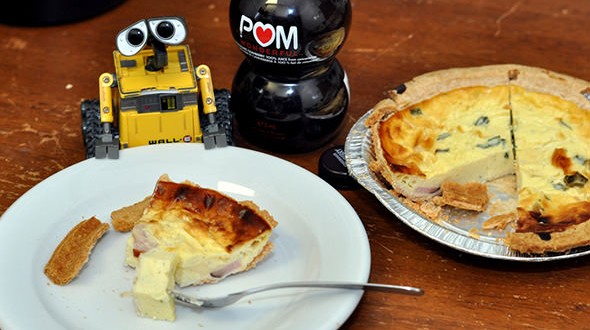The Thai government apparently has been distressed lately about the lack of uniformity at restaurants serving dishes purported to represent authentic Thai cuisine. The answer to the problem: Taste-testing robots.
The two robots unveiled at the NIA’s press conference on Tuesday are called e-Delicious and ESenS. The first robot has an electronic nose with 16 gas sensors and an electric tongue that can sense sweet, sour, salty, bitter, and umami(savoury) flavors. The second uses micro-sensors to compare dishes to a database of recipes.
The NIA has so far created 11 government-approved standard recipes, which include Tom Yum Kung, Pad Thai, Mussaman Curry, and Golek Chicken Sauce.
For more information on the project and the recipes, the government has also launched an iOS app called Thai Delicious, which offers some authentic recipes. It’s available for download in the App Store.
The project is aimed at standardizing Thai cooking in a bid to ensure Thai food served locally and internationally remains authentic. The move will also add value for Thai cuisine in the global market. The project is part of the government’s ‘Thai Kitchen to the World’ campaign.
The Thai Delicious project, which started two years ago, combined the knowledge of home economics, science and food technology. The NIA has enlisted the help of the Thai Chefs Association and other agencies to complete the project.
NIA’s Assistant Director Mr Supachai Lorlohakarn said the project is estimated to cost 23.5 million baht and has a total investment value of 130.6 million baht.
The NIA plans to expand the distribution of the products from the project to Japan, Sweden and other countries by the end of this year.
Agencies/Canadajournal
 Canada Journal – News of the World Articles and videos to bring you the biggest Canadian news stories from across the country every day
Canada Journal – News of the World Articles and videos to bring you the biggest Canadian news stories from across the country every day



